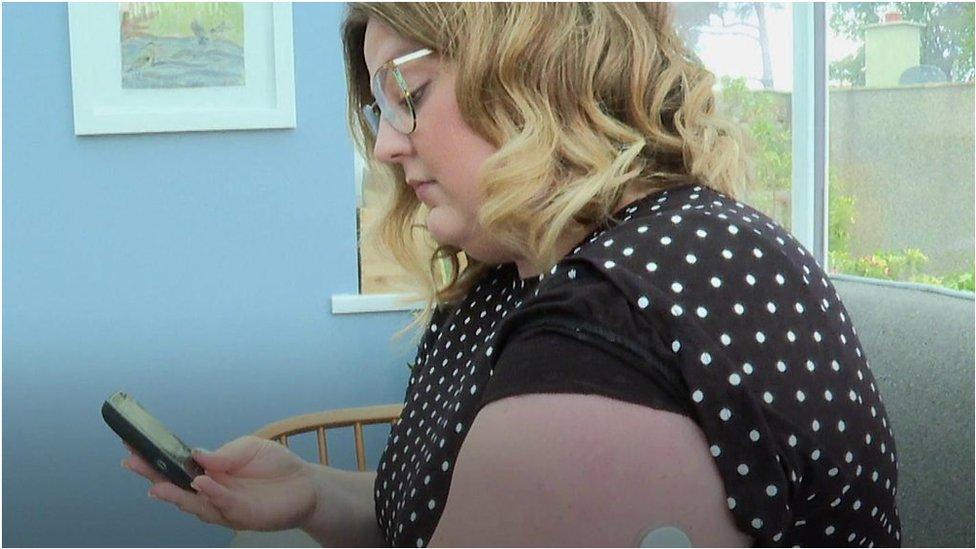Diabulimia: 'Diabetes and eating disorder almost killed me'
- Published

Five years apart - Gwen Edwards says diabulimia has taken its toll on her
When it was at its worst, Gwen Edwards thought: "How on earth am I still here?"
She lives with insulin-dependent type 1 diabetes.
But nearly five years ago, she started skipping the injections that were keeping her alive, in a bid to stay thin.
Now the 22-year-old from Anglesey knows she was dealing with a little-known eating disorder labelled "diabulimia" - and it almost killed her.
"It's a voice in my head that tells me I don't need injections," said the teaching assistant, from Rhydwyn on Anglesey.
"It's a vital medicine that I need to keep myself alive.
"It's a shock to me that I haven't made myself worse than what I am now."
The term for the disorder combines diabetes with the eating disorder bulimia.
It is only experienced by individuals such as Gwen, who must inject insulin to survive.
It has been described as an "invisible condition" by experts at the charity Diabetes UK - invisible and potentially deadly.
"When you have type 1 diabetes, you need insulin to live, so this can have incredibly dangerous consequences," said one of the charity's officers in Wales.
Skipping the injections can send blood sugar levels rocketing, which can lead to the life-threatening condition called diabetic ketoacidosis.

At the height of the eating disorder, Gwen went weeks at a time without checking her blood sugar levels
It left Gwen heading to A&E in hospital at least six times in the last five years.
"How on earth am I still here, because I have made myself so ill?" she said.
But after seeing the impact it had on not just her - but also her parents - she finally sought help.
She has been undergoing cognitive behaviour therapy to combat the disorder.
"Seeing my parents upset really breaks my heart," said Gwen.
"My mum - she used to wake me up twice, three times in the middle of the night, just to check if I was still alive.
"She was so scared that I wasn't going to wake up in the morning."

What is diabetes?
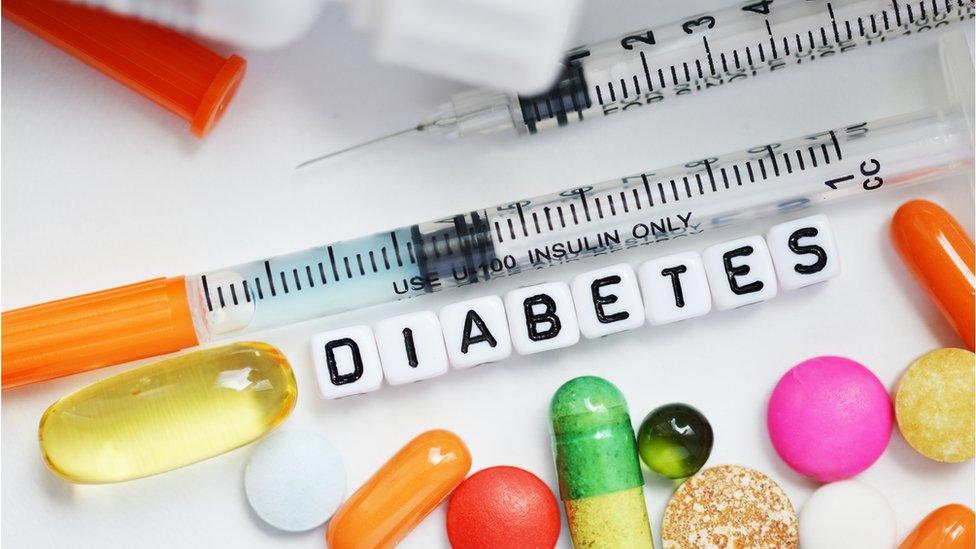
All forms of diabetes have one thing in common - too much sugar, or glucose - in the blood stream.
The levels of glucose are normally controlled by the hormone insulin, which is produced by the pancreas.
If you have type 1 diabetes, your body cannot make insulin.
With type 2 diabetes, your insulin is not working effectively, or you cannot make enough.
Type 1 diabetes is a serious, life-long condition that is treated by injecting insulin.
Type 2 diabetes can often be treated with lifestyle changes and medication, and sometimes it is possible to reverse the condition.
Without treatment and management, diabetes can have long-lasting health impacts - including life-threatening conditions.
It can lead to eye problems, foot problems, kidney issues, increased heart attack and stroke risks, and nerve damage.
Source: Diabetes UK

Gwen said a lack of knowledge about the condition made it difficult to initially realise she needed help.
"It's really not okay - it's a horrible thing to go through.
"The fact that I've been struggling for so long, but not knowing that I had diabulimia - I could have prevented all this months, years ago.
"But because there's not enough information about it, I had no clue that I was suffering from such a bad illness."
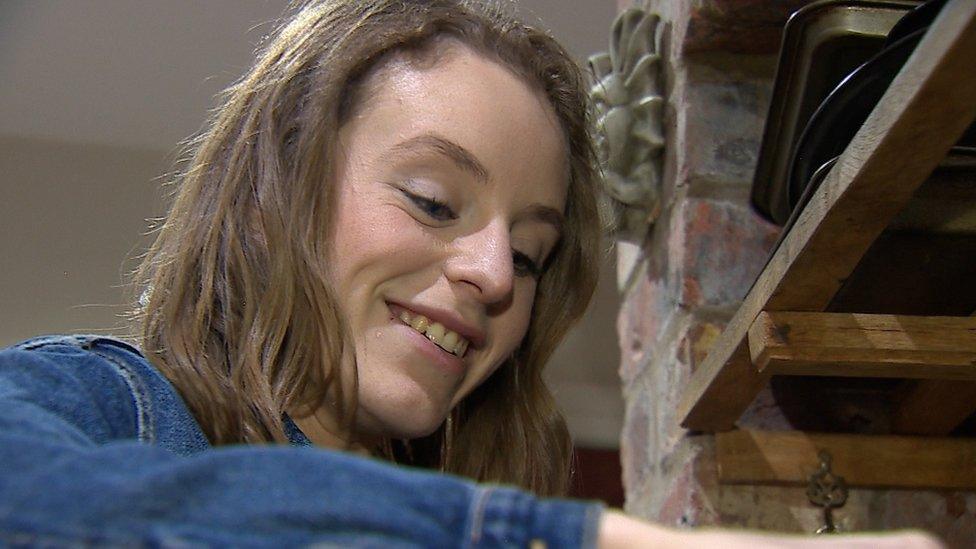
At home on Anglesey today, Gwen says she is getting the help she needs to confront her eating disorder
The charity said cases such as Gwen's highlighted the need for more help.
"Diabetes UK Cymru is calling on Welsh Government to ensure everyone with diabulimia has access to specialist services, and receives the help they need to overcome this condition," said a spokeswoman.
"With the right treatment and support, people can recover and lead healthy lives."
The Welsh Government said it was providing £1.75m a year to health boards to ensure individuals have access to eating disorder services.
"We have set out the actions we expect health boards to take to improve eating disorder services and we are providing an extra £700,000 to support these improvements," added a government official.
In the meantime, Gwen offered this advice to those with type 1 diabetes who have concerns: "Find support, find information, go to your doctor - get help."
If any of the issues discuss here have affected you, advice and information on eating disorders is available at the BBC Actionline. You can also find out more about type 1 diabetes from the Juvenile Diabetes Research Foundation, external, or from Diabetes UK in Wales, external.
- Published29 January 2020
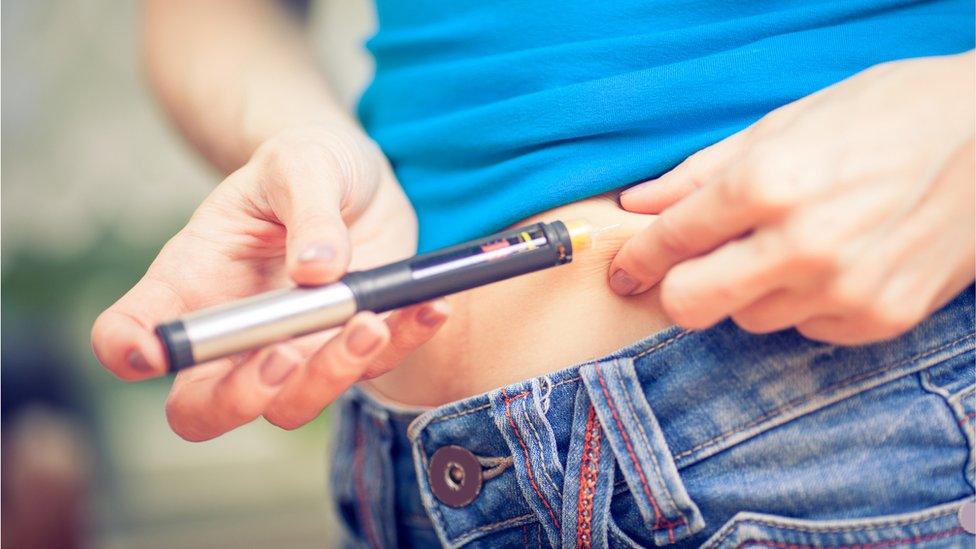
- Published11 September 2018
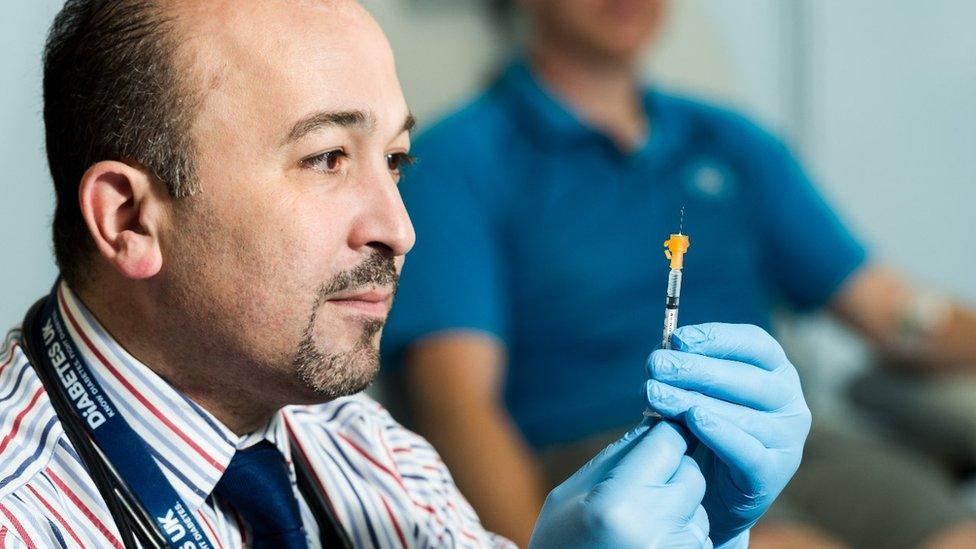
- Published13 July 2018
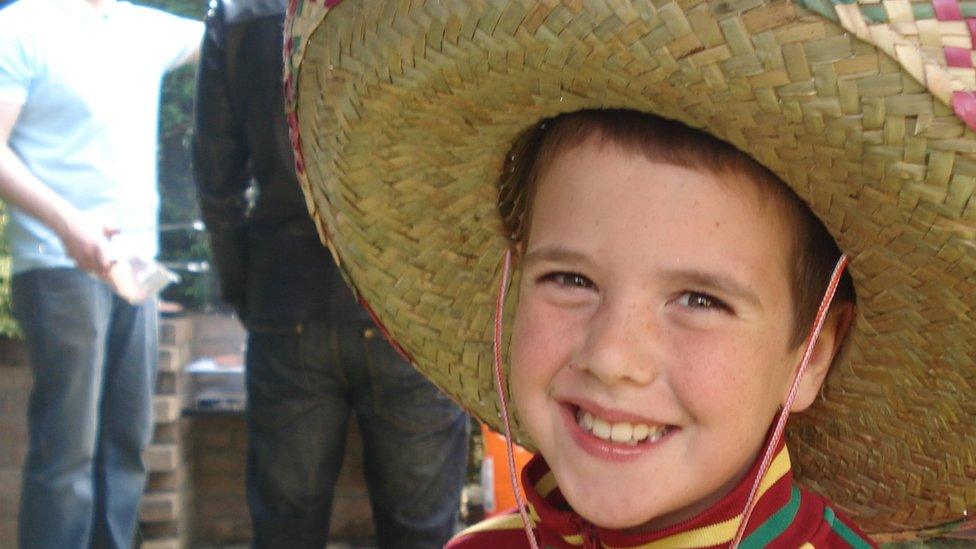
- Published14 September 2019
